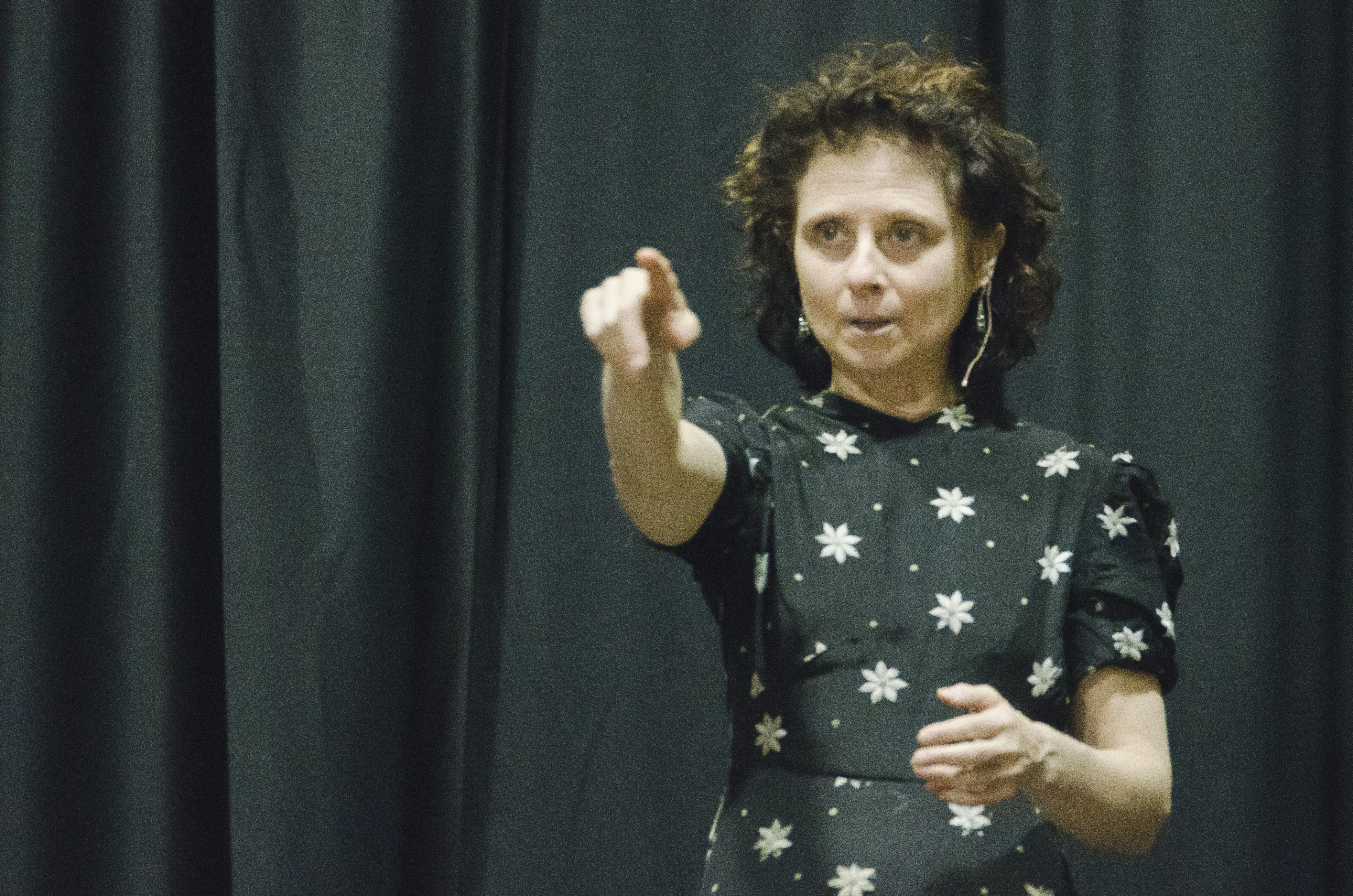An unusual art form highlighted a new aspect of the Holocaust as part of Pacific Lutheran University’s fall lecture series Monday.
“Etty” is a one-woman play performed by theatre professional Susan Stein and directed by Austin Pendleton. Stein visits a variety of locations to perform the play, including schools, colleges and prisons. At PLU, Stein gave her performance in the Chris Knutsen Hall of the Anderson University Center.
Stein explores the life of Esther “Etty” Hillesum, a young Dutch Jewish student living in Amsterdam during World War II, by performing a selection of Hillesum’s diary entries and letters, which she presents in a non-chronological order.
Hillesum served on the Jewish Council, a Nazi set-up liaison group Jews served on under duress, before the Nazis sent her to Auschwitz, murdering her 89 days later. Stein wrote the script solely with the words of Hillesum’s entries and letters with the exception of one explanatory sentence about the Jewish Council.
A dinner preceded the performance for Powell-Heller Conference — the spring Holocaust conference at PLU — and Holocaust studies faculty, donors and student.
During this, Stein explained she did not really know Hillesum, and then said, “I only know the paper trail.”
Because of Stein’s acting and the fact that she rearranges the chronology of events and some of Hillesum’s words, Stein said, “all you’re getting in the play is my interpretation.”
She said her primary goal is to inspire people to read Hillesum’s writing. “The play is, at best, a glimpse,” Stein said.
The evening performance began shortly after organizers dimmed the lights. The seven rows of seats were fairly full, the audience facing a black stage that was empty save for an old-fashioned brown suitcase with a glass of water behind it.
After a brief introduction by Bob Ericksen, a professor and chair of Holocaust studies, Stein entered the room from stage left as Hillesum.
Stein said Pendleton once told her that with the performance, there should be “no acting. Just look into the eyes of the audience and talk.”
The play covered many moments of Hillesum’s life, from her affair with her therapist to her fear of mental illness, an abortion and the concern she felt for the safety of her family. Stein used hand gestures and voice modulation to convey emotion.
Near the close of the performance, Stein said through Hillesum’s words, “every camp needs a poet, a bard to sing about it.”
The 55-minute presentation concluded with Stein leaving the stage as she had entered — though she returned for one brief bow — to change and head the Q-and-A session. The questions lasted about as long as the actual performance.
“I particularly appreciated the discussion afterwards,” Ericksen said. “So many people had remembered specific lines from the play and talked about their significance.”
First-year Kalina Springer said she found the Q-and-A session helpful, because the performance moved so quickly she didn’t have time to think about it until after.
“I thought [the play] brought an interesting perspective,” Springer said, because Holocaust perspectives are “usually performed as 100 percent bitter or [with] more of a sad tone.”
Senior Julia Walsh said she wasn’t entirely sure what to make of it. “I hesitate to say I enjoyed it because of the topic,” Walsh said, “but I felt the pull of it.”
Stein, who is still revising her script, said she plans to carry on the performances for about another year before she publishes “Etty” and continues with a different project.
“I wanted to give something back to her,” Stein said. “To keep her alive.”
Details about the origin of “Etty,” other events and reviews can be found at http://www.ettyplay.org/index.html.

















